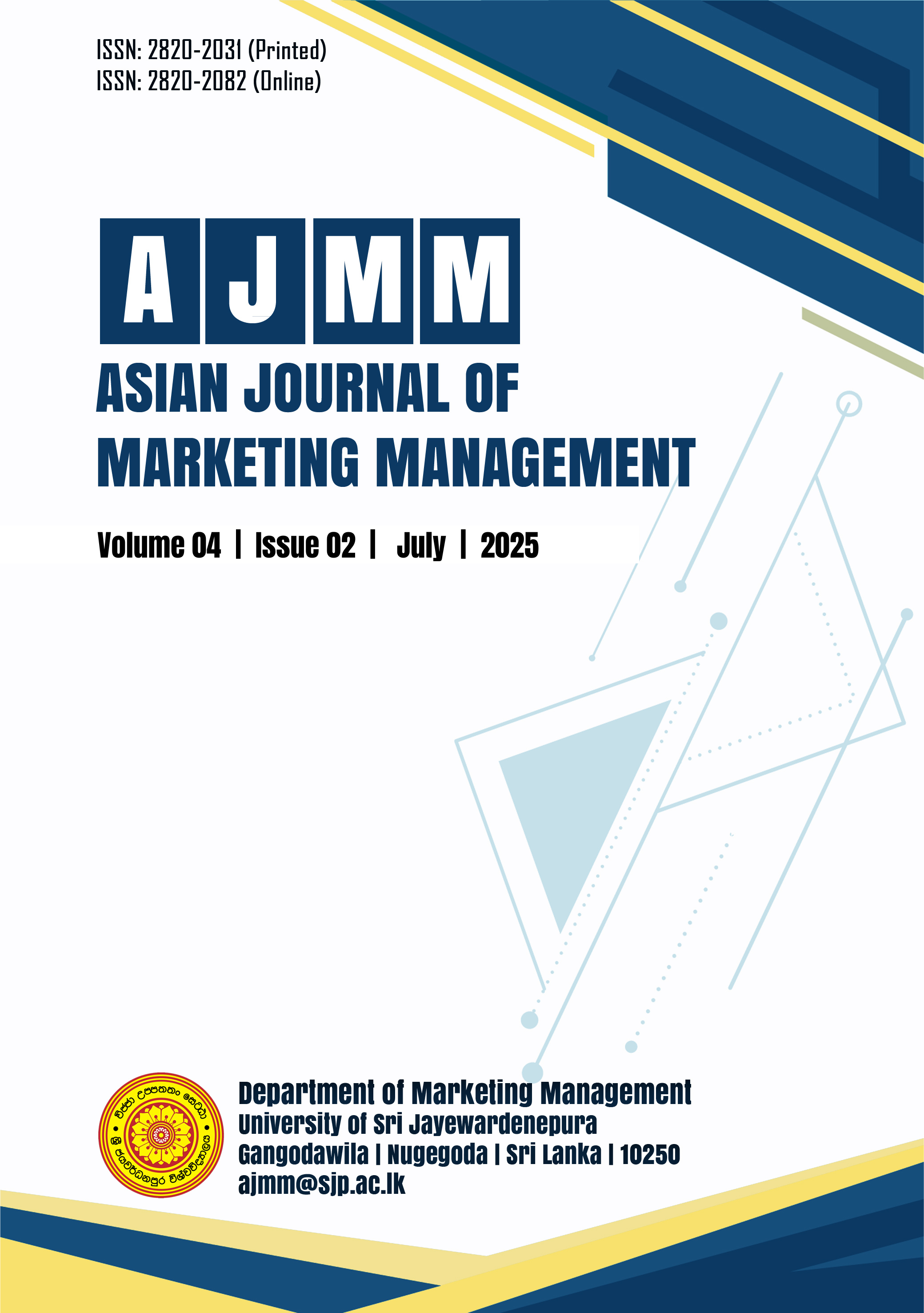The Influence of AI-Driven Marketing Analytics on Strategic Decision-Making in Private Educational Institutes in Sri Lanka: Moderator Role of Organisational Culture
DOI:
https://doi.org/10.31357/ajmm.v4i2.7970Keywords:
AI-driven Marketing Analytics, Higher Education, Organizational Culture, Strategic Decision-makingAbstract
Purpose: This study explores the influence of AI-driven marketing analytics on strategic decision-making processes in Sri Lankan private universities. AI-driven analytics enable private education institutions to offer insights for targeted student recruitment campaigns and optimized resource allocation.
Design/methodology/approach: A quantitative methodology was adopted, employing a deductive approach to test hypotheses related to AI adoption and its impact on strategic decision-making. The study focused on 225 managers, decision-makers, and administrative staff involved in marketing and decision-making processes within private universities. Data were collected through a structured questionnaire survey, analyzed using SPSS v26, and validated through reliability, regression, and moderator analyses.
Findings: There is a positive and statistically significant impact of AI-driven marketing analytics on strategic decision-making effectiveness. Organizational culture emerged as a critical moderator, influencing how AI tools are utilized. Institutions with innovation-oriented cultures were found to adopt AI technologies more effectively, promoting adaptability, experimentation, and collaboration.
Originality: This study uniquely integrates organizational culture as a moderating factor, providing new insights into how innovation-oriented cultures enhance AI adoption and utilization. By addressing gaps in existing research on AI applications in educational marketing, this study offers a novel framework for leveraging AI tools to optimize decision-making in higher education institutions.
Implications: The study highlights the importance of fostering data-driven and innovation-focused cultures within universities to maximize AI adoption. Recommendations include investing in AI tools, staff training programs, and ethical data governance frameworks. Additionally, collaborative decision-making models integrating AI insights with human expertise are suggested to optimize strategic outcomes.





